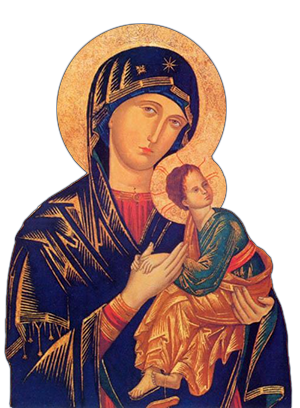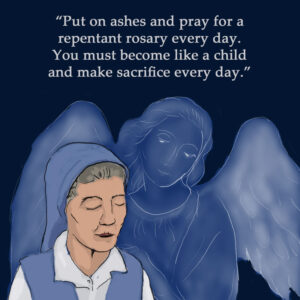Gilbert: America’s Christian Turning Point
Watching the speeches during the Charlie Kirk Memorial, one could not help but wonder if the turning point prophesized by Charlie and his organization was in fact taking place. Each speaker highlighted different moments from Kirk’s life but all of them echoed the theme that he wanted most to be remembered by: his courageous Christian faith. They spoke with an openness that is rarely seen on such a global stage. And they spoke unapologetically of a kind of state that was not so separate from its churches. “I have talked more about Jesus Christ in the past two weeks than I have my entire time in public life,” Vice President JD Vance admitted sheepishly during his tribute. And this is a testament to Charlie. Would any of these renowned heads of state been so forthright had he not been so consistent in his expressions?
We know who killed Charlie Kirk on September 10th, 2025. We know where and how he did it. But there’s still a cloud of uncertainty about why he did it. There is never a reasonable explanation for evil. Secretary Hegseth noted in his speech how Kirk had become aware that he was not fighting merely a political or cultural war, but a spiritual war. He was fighting the very forces of evil. Therefore it can be believed that Charlie died for his faith. And that he died for his wife Erika’s faith as well because when God called Charlie to his heavenly home, it would be his wife who carried most the great burden of his sacrifice.
Emerging from the shadows of the stage, a grief-stricken Erika Kirk came tearfully before the podium to give the definitive response to many zealous and eloquent accolades offered for her husband and to prove that they were merited with a speech that no one could have predicted or imagined.
It was immediately clear that the young widow positively adored her Charlie. Both the loving pride she had in him and his Christian gentleness towards her were evident in the anecdotes; the love notes he would leave her each Saturday, the single gray hair she noticed among all his others on his head; little things that expressed the intimate closeness they shared. The speech also touched the supernatural with Erika describing the faint smile on her deceased husband’s body, a detail she would not have seen at all had she not looked with eyes of faith.
Erika connected his death to a speech he gave two years prior in which in citied Isaiah 6:8. Here I am, Lord. Send me. Backstage, she caution him about what he was saying. “Charlie, baby, please talk to me next time before you say that statement. Because when you say something like that, there is so much power in that verse. When you say, ‘Here I am, Lord. Use me,’ God will take you up on that.”
Her apprehension proved to be well-founded. God did take him up by asking for the ultimate sacrifice from the Kirk family.
“I will miss him so much because our marriage and our family were beautiful,” she said, reflecting on her immense loss. But Erika continued and turned her loss into an appeal to men and women. Recognizing the incredible blessing that God gave to her and Charlie, she asked all of us to be the kind of Christian that her Charlie was. She asked men to be mature, to be fathers, to be leaders worth following. She asked women to be virtuous, to be mothers, to be guardians, and to help their husbands be all that they should be. This was not flowery rhetoric. It was the appeal of a Christian who was proving her faith very publicly. And it was painful in its direct power. Erika gave to us her special claim to the meaning of this terrible tragedy and moment in American history to encourage us to be better people.
Then, in what could be described as the most Christian moment in modern televised history, she reached into the uttermost depths of her profound sorrow and returned with the unexpected: forgiveness.

That young man, she said in a sad tone like the helpless shudder of a fatally wounded heart, referring to the murderer of her Charlie, her beloved, her own flesh, united to her by God Himself. And the whole world ached with her.
That young man, she said again as she somehow summoned the strength to continue the speech.
Then, looking toward heaven and appealing for the help of the queen of angels, she gave up what was hers alone: the eternal debt owed to her by another person.
“I forgive him,” she said as she forgave her husband’s murderer.
And that was the moment in which I wept, and I’m sure that countless others did too. For as many times as we’ve heard about forgiveness and have practiced it in our own lives, we trembled in our hearts to see it given in this way for such an unhappy cause. We wondered how it is possible for this young mother of two, with so much life and all of its lonely struggles ahead of her, this wife who so obviously loved and was loved by her husband, how is it that she who had lost the most could release her debtor in such a way? Before such a display of merciful grace, one could only weep from shame of being unworthy of such solid proof of Christianity as this solitary act of selfless love.
Perhaps we understood in that moment better than we did before how Mary experienced the death of her son. Perhaps we shared a tinge of the pain dealt by the sword of sorrow that pierced her heart through when the best person of all was savagely ridiculed and killed by his own people. Perhaps we experienced a fathom of the cavernous emptiness of loss in the aftermath of death as Mary did as she buried her son. In any case, it is hard to deny the Marian dimension of Erika’s forgiveness.
So many commenters vied to shape the Christian response to the tragedy of Charlie Kirk’s death; American bishops who were in touch with Charlie, blasé and detached Vatican prelates, his friends in the media, even Charlie’s pastor spoke at the memorial. But no one laid claim to the message as much as his wife. She rose to the challenge like the solemn morning sun after the longest darkest night. By God’s grace she rose and shone forth. We all saw it and it was undeniable and breathtaking to behold.
The turning point has come and the country has turned, there is no doubt. Charlie and Erika had ensured this by being so overtly Christian that any grandstanding politician would have to praise Jesus in order to praise Charlie. And anyone who wants to share in the bounty of this new Christian populism will need to start going to church and reading the Bible, to walk the walk by taking up the Cross. “You must choose to mark your soul again and again in the direction of Christ”, she reminded us.
On a deeper level, those who may have doubted if this new expression of Christian politics was of God can see plainly by the effects of this memorial that Jesus Christ, King of the Universe, is indeed well pleased with His servant Charlie and will surely bless and reward Erika and the country that she and Charlie love so much in the years to come.



